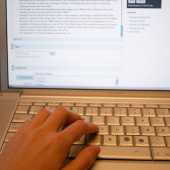Big Week Ahead for Iowa Republicans
Big Week Ahead for Iowa Republicans
Campaigning early in Iowa has been pro-forma for Republicans since I can remember, partly because of the early voting status of Iowa's caucuses, and partly because of the Ames Straw Poll. The Ames Straw Poll is the earliest indicator of GOP favor in the Republican primary race, and is heavily publicized for that reason. Leading the pack in Iowa is Rep. Michelle Bachmann (R-MN), who announced her candidacy in Waterloo, IA to adoration from supporters and gleeful jeering from the media; she accidentally confused actor and conservative John Wayne and serial-murderer and sodomist John Wayne Gacy in her opening speech. Despite that, she has pulled significantly ahead of her rivals in Iowa polling, capturing a large portion of the evangelical vote, which constitutes 60% of Iowa's GOP voter base. With a televised debate on Thursday ahead of the polling, it may give her opponents an opportunity to dethrone her.
Former Minnesota Governor Tim Pawlenty has been campaigning hard in Iowa, sending jabs at Bachmann in his interviews and press releases. He's even gone so far as to take out television ads (an unusual move this early) in Iowa to attempt to brand his message and come ahead in the polls. former Speaker Newt Gingrich has also devoted time and energy to Iowa, though less consistently (which sums up his entire campaign). Meanwhile former Massachusetts governor Mitt Romney and and Utah governor Jon Huntsman have been trading jabs as well, but not in Iowa. Romney made a poor showing there in 2008, largely believed to be a result of his Mormon religion which seems to be a sticking point for many Republican evangelicals. Huntsman, taking a cue from Romney's experience, has also devoted little time and money to Iowa for the straw polls. Rick Santorum, who has largely been a non-entity in the race except for a brief bout of controversy over his social conservatism and the Iowa-based Family Leaders' "Marriage Vow" pledge, is at a make-or-break point. If Santorum has a good showing in the Straw Polls on Saturday, it will show that his town hall, small-group address strategy has been working and his campaign yet may survive (despite the fact that he holds the bottom of the popularity polls at just 1%). Herman Cain has made a moderate effort in Iowa, but has largely been on the defensive regarding controversial remarks about immigration and particularly on his anti-Muslim sentiments.
The real dark horse for this week is Texas governor Rick Perry, a Tea Party and evangelical favorite and well-positioned to make a run for the primary. However, his best strategic move would be to enter immediately before Thursday's televised debate, reserve his spot on the national stage, and just in time for the Ames Straw Poll. This would mean that he makes his announcement sometime before Wednesday at the latest. Perry's entrance would greatly disrupt Bachmann's lead in Iowa, and may stamp out Santorum's campaign out-of-hand, as both appeal to the social conservative right. Making this possible move even more interesting is Perry's religious revival, titled "The Response", held yesterday in Houston, Texas. Accused of using religion as a political tool and excluding non-Christians, Perry also enlisted the help of a number of fringe right-wing religious groups in paying for and attending the event. However, this may actually appeal to some of the conservative religious voters that make up the majority of the Iowa GOP voters base.
The strange thing about the fanfare around the Ames Straw Poll is that it doesn't actually matter who wins in the long run. The last time the Straw Poll picked the Republican nominee was in 1999 with George W. Bush. What the Straw Poll does do is gives the winner a temporary popularity spike and may slightly depress polling losers fundraising efforts. Other than that, it's really only predictive of how well the GOP candidates can get their people to the polls; how well their people organize and mobilize. In fact, the early Iowa Caucuses (sometime in February next year) are also a dismal predictor of Presidential wins. Really, the Iowa voter base doesn't pick likely people, but it is a good opportunity for candidates to test their mettle.



